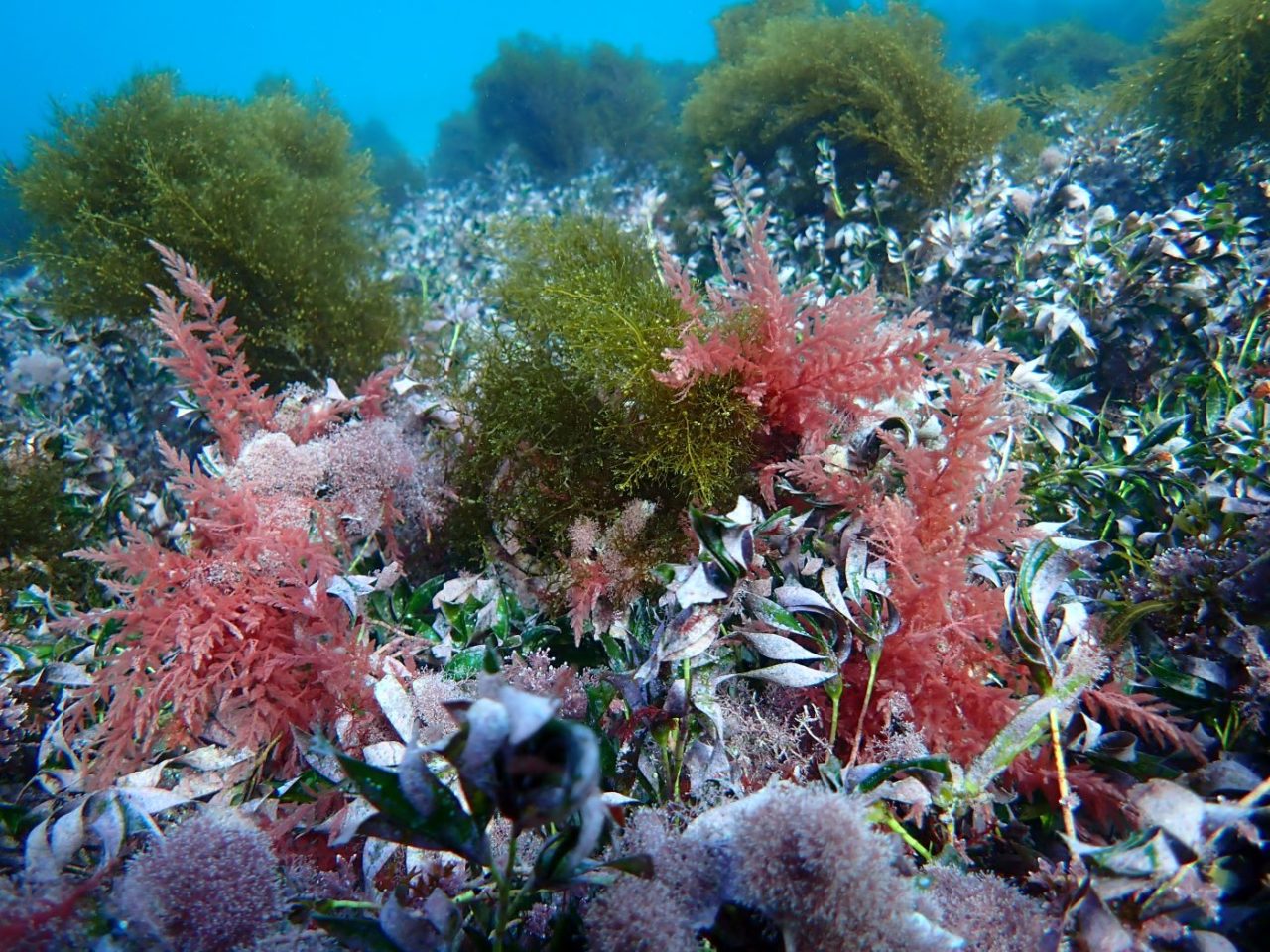IMAS scientists have recently closed several key data gaps for the red seaweed species, Asparagopsis armata, which is at the centre of an emerging aquaculture industry due to its potential to contribute to global methane emissions reductions.
The Asparagopsis Bioregional Project, a partnership between IMAS scientists, the Department of Natural Resources and Environment Tasmania and Sea Forest, recently concluded, having uncovered detailed information about the distribution, reproductive status and genetic structure of Asparagopsis populations around Tasmania.
When added as a livestock feed supplement, compounds in Asparagopsis have been shown to dramatically reduce livestock methane emissions.
Click here to view the full news story, which includes the project's key findings.
The final project report can be found here.

This project was supported with funding from the Marine Bioproducts Cooperative Research Centre (MBCRC), the Department of Natural Resources and Environment Tasmania (NRE Tas), Sea Forest Ltd and the University of Tasmania. NRE Tas support came through the Sustainable Marine Research Collaboration Agreement between the Tasmanian Government and UTAS.